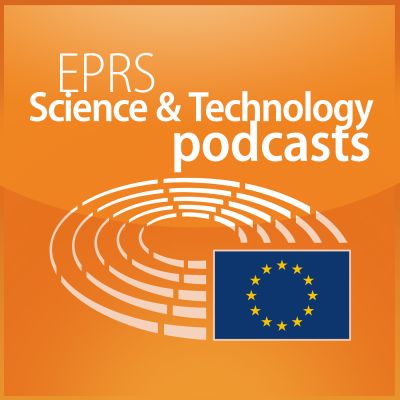http://www.w3.org/2005/Atom
https://www.europarl.europa.eu/thinktank/en/audio-podcasts
Gesamtlänge aller Episoden: 5 hours 36 minutes
What if the problem with cars was not their method of propulsion?
The European automotive industry is striving to adapt to market changes driven by the dual green and digital transition. Electrification has become the main strategy for reducing CO2 emissions, especially in urban traffic. At the same time, the average size and weight of cars have greatly increased. Big electric cars are the trend, but are they really the solution? Could better planning and optimisation of resources help?
Analysis exploring risks and opportunities linked to the use of collaborative industrial robots in Europe
Robot applications, including 'collaborative robots' - cobots - designed to collaborate with humans, are in high demand, with sales and installation figures constantly on the rise. However, it is necessary to analyse the risks and opportunities of this technology and its possible social, economic, and ethical impacts. The following study presents the current state of collaborative robotics, its benefits, and its disadvantages, with a special emphasis on key aspects such as safety...
What if generative artificial intelligence became conscious?
Generative artificial intelligence applications, such as ChatGPT, are powered through complex learning processes by comprehensive datasets of – potentially dubious – human-created content. There are concerns that such tools could develop consciousness and spark emergent behaviour that is, by definition, unpredictable and therefore potentially unsafe. Do these concerns point to a need to look again at the relevant legislation?
What if the EU were energy independent?
The EU depends on imported fossil fuels (gas, oil and coal) for about 56 % of its energy needs (gross energy consumption), which in 2021 represented an energy bill of around EUR 300 billion. The domestic production of renewable energy sources has increased significantly in recent years to 22 % of total demand. The European Union can aspire to achieve energy independence through the deployment of existing and emerging technologies...
What if Europe ran out of water?
Droughts and water scarcity are no longer rare or extreme events in Europe. About 20 % of the European territory and 30 % of Europeans are affected by water stress, especially in Southern Europe but also around some river basins in Western and Central Europe. And climate change will only make matters worse, increasing the frequency of extreme events and making the south even drier.
What if algorithms decided what we should eat by looking at our DNA?
Diets tailored to our individual characteristics could bring about health benefits but require data on our most personal features, such as our DNA. The promises are many, but so are open questions about the interactions between genes, nutrients, environment and health, and the role of socioeconomic factors behind our food choices...
Splinternets': Addressing the renewed debate on internet fragmentation
Recent events have multiplied concerns about potential fragmentation of the internet into a multitude of non-interoperable and disconnected 'splinternets'. Composed of thousands of compatible autonomous systems, the internet is by definition technically divided. Yet, the internet was also designed to be an open and global technical infrastructure. The unity and openness of the internet appear to be under great pressure from political, commercial and technological developments...
What if biosensors could help treat rare diseases?
Most rare diseases are incurable. Biosensors are a technology that, driven by continuous advances in artificial intelligence, can help disease detection, lower the cost of novel therapies, replace placebo groups in clinical trials and foster patient-centred, personalised (e)-medicine.
What if we could make nuclear fusion work?
To reach the Paris Agreement objective of keeping the global temperature increase well below 2°C, the EU must consider every possible technology to decarbonise its energy production. Nuclear fusion is the process that powers our sun and we can recreate it on Earth. However, even if we overcome the considerable engineering challenges of designing a fusion power plant, there are hard constraints to upscaling fusion power.
What if open strategic autonomy could break the cycle of recurring crises?
Open strategic autonomy ensures the capacity to cope alone if necessary but without ruling out cooperation whenever possible. It relies on foresight to identify threats and ensures resilience by anticipating the required responses. Can the resulting preparedness also prevent crises (or dissuade others from creating them) by normalising internally situations that would else become emergencies?
